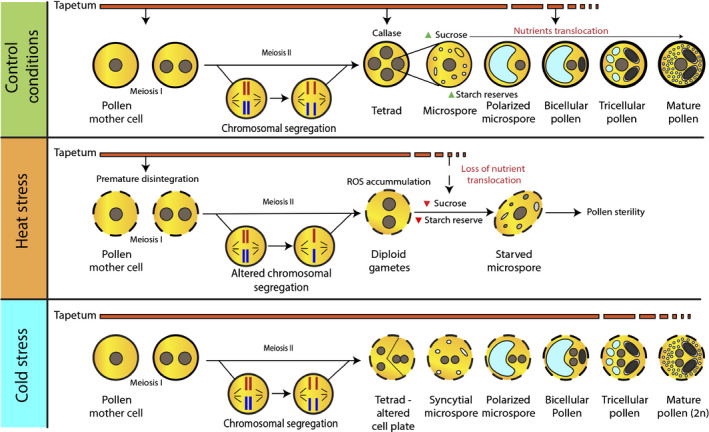Fig. 1.

Schematic overview of cytological alterations imposed by heat and cold stress during male gametophyte development. Under heat stress conditions, the tapetum starts to degrade prematurely, which affects the nutritional supply to the developing pollen and leads to pollen sterility. Furthermore, the concentration of the soluble carbohydrate and starch reserves decreases in the developing anthers, followed by an increase in the reactive oxygen species (ROS) accumulation. Under cold stress, the tapetum does not undergo early degradation but rather shows abnormal expansion at the microspore stage and persists until pollen maturity. Cold treatment has a restitutive effect on the male meiosis; it significantly alters cell plate expansion and cell wall formation during meiotic division. Furthermore, cold‐stressed pollen mother cells produce microspores harbouring multiple haploid nuclei. Before pollen mitosis I (PMI), these nuclei fuse and develop into diploid or polyploid pollen.
